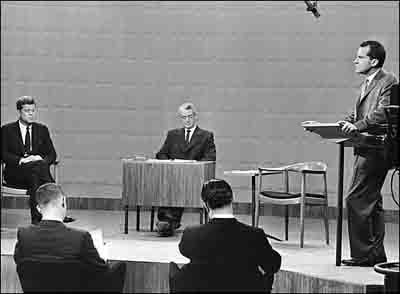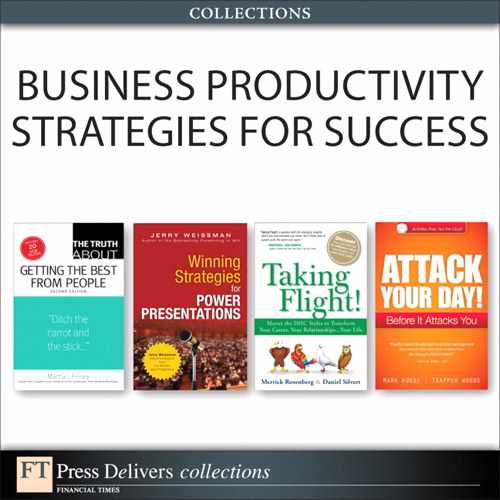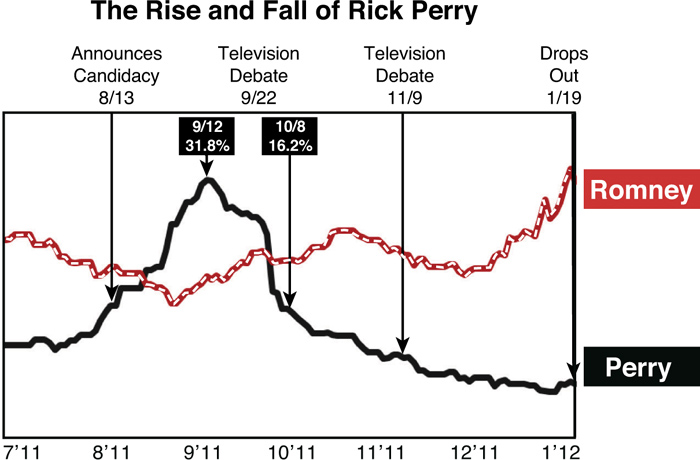57. Presentation Counts
The Rise and Fall of Rick Perry

The first ever televised debate between U.S. presidential candidates Senator John F. Kennedy and incumbent Vice-President Richard M. Nixon in 1960 was the seminal event that changed the face of political campaigning forever. Mr. Kennedy entered the race as an underdog with two strikes against him: At 43, he was the second youngest man ever to run for office (William Jennings Bryant was 36 when he ran in 1896, and he lost to William McKinley) and the second Catholic candidate (the first, New York Governor Al Smith, had lost to Herbert Hoover 32 years earlier).
In the debate, Mr. Kennedy outshone Mr. Nixon and went on to win the election. Ever since, no candidate could succeed without having or acquiring powerful delivery skills.
• In the 1980s, The Great Communicator, Ronald Reagan, outshone both the homespun Jimmy Carter and the bland Walter Mondale in consecutive elections.
• In the 1990s, the glib Bill Clinton outshone both the patrician George H. W. Bush and the drab Bob Dole in consecutive elections.
• In 2008, the dynamic Barack Obama outshone the cantankerous John McCain.
Presentation counts.
The race for the Republican candidate for the 2012 presidential election began early in 2011. In May of that year, a crowded field of candidates engaged in the first of what would ultimately amount to 27 debates on national television.1
When Texas Governor Rick Perry entered the race on August 13, he was late to the game. Former Governor Mitt Romney, ultimately the winning candidate, led a large pack that included Former House Speaker Newt Gingrich, Former Senator Rick Santorum, Representative Ron Paul, Representative Michele Bachmann, businessman Herman Cain, and Former Governor Jon Huntsman.
But Mr. Perry brought a lot to the game. He was movie-star handsome with a square jaw, wavy hair, and an athlete’s build clad in impeccably-tailored suits. He had won three consecutive gubernatorial races and was the darling of the influential conservative wing of the Republican Party that financed his campaign with an abundant war chest. Brandishing this powerful array of personal and political assets, Mr. Perry jumped to the head of the pack in the public opinion polls, only one month after his announcement, and joined the debates.
In the next debate on Fox News on September 22, correspondent Chris Wallace, true to his role as a moderator (and his legacy as the son of the renowned journalistic provocateur Mike Wallace) tried to stir up conflict. He asked Mr. Perry to comment on Mr. Romney’s current health care proposal and the one he developed when he was the governor of Massachusetts:
PERRY: I think Americans just don’t know sometimes which Mitt Romney they’re dealing with. Is it the Mitt Romney that was on the side of against the Second Amendment before he was for the Second Amendment?
Was it—was before he was before the social programs, from the standpoint of he was for standing up for Roe v. Wade before he was against Roe v. Wade? He was for Race to the Top, he’s for Obamacare, and now he’s against it. I mean, we’ll wait until tomorrow and—and see which Mitt Romney we’re really talking to tonight.2
The convoluted ramble went viral in the media and, within two weeks, by October 8, Mr. Perry’s numbers in the polls plummeted to almost half. You can see the results in Figure 57.1, taken from figures on the realclearpolitics.com website of their “RCP Poll Average for the 2012 Republican Presidential Nomination.” Please note that we’ve charted Mr. Perry’s progress only against that of Mr. Romney; for the purposes of this chapter, we have omitted the other candidates.3
Figure 57.1. RCP Poll Average for the 2012 Republican Presidential Nomination
Mr. Perry participated in two more debates in October without incident. Then on November 9, he joined his opponents for another debate on CNBC, this one focused on the economy. During one of his turns, Mr. Perry explained his tax plan:
PERRY: But the fact of the matter is, we better have a plan in place that Americans can get their hands around, and that’s the reason my flat tax is the only one of all the folks—these good folks on the stage. It balances the budget in 2020. It does the things for the regulatory climate that has to happen.
And I will tell you, it’s three agencies of government, when I get there, that are gone: Commerce, Education, and the—what’s the third one there—let’s see...
Mr. Perry paused, unable to name the third agency he would eliminate. The audience began laughing. Ron Paul, who was standing next to Mr. Perry, made light of the moment, “You need five.”
Mr. Perry tried to be light too, “Oh, five. OK,” he said. Then, trying to remember the third agency, he started back at the beginning of his list, “OK. So Commerce, Education and...the....” But he paused again. The audience continued laughing, now joined by the other candidates.
Mitt Romney, also trying to be light, said with mock helpfulness, “EPA?”
Trying to be good-natured, Mr. Perry said, “EPA. There you go,” waving his hand at Mr. Romney and then slapping it on the lectern in mock agreement. The gestures brought more laughter and a round of applause from the audience.
John Harwood, one of the CNBC moderators asked, “Seriously? Is EPA the one you were talking about?”
PERRY: No, sir. No, sir. We were talking about the agencies of government—EPA needs to be rebuilt. There’s no doubt about that.
HARWOOD: But you can’t—but you can’t name the third one?
PERRY: The third agency of government.
HARWOOD: Yes.
PERRY: I would do away with the Education, the Commerce and—let’s see—I can’t.
He paused again, crestfallen.
PERRY: The third one, I can’t. Sorry. Oops.4
The “Oops” heard around the world, along with the convoluted ramble of the September debate, proved to be Mr. Perry’s undoing. His rise and fall forms an almost a perfect bell curve in the opinion polls, with the down side paralleling the two fateful gaffes in the debates. The slide continued until Mr. Perry withdrew his candidacy in January 2012.
Granted that the stakes in presidential debates are an order of magnitude greater than any business presentation you will ever give. But there is a significant parallel, and it was eloquently stated by Jon Meacham, a Pulitzer Prize-winning author who has written biographies of Andrew Jackson, Franklin Roosevelt, and Winston Churchill:
What is deeply relevant and often revealed in the debate formats that have become so familiar to Americans in presidential politics since 1960 is performance skill—the capacity to project a vision or communicate the essence of one’s character with brief moments and gestures that create lasting impressions.5
Mr. Meacham’s words are as deeply relevant to business communications as they are presidential politics: presentation counts.

